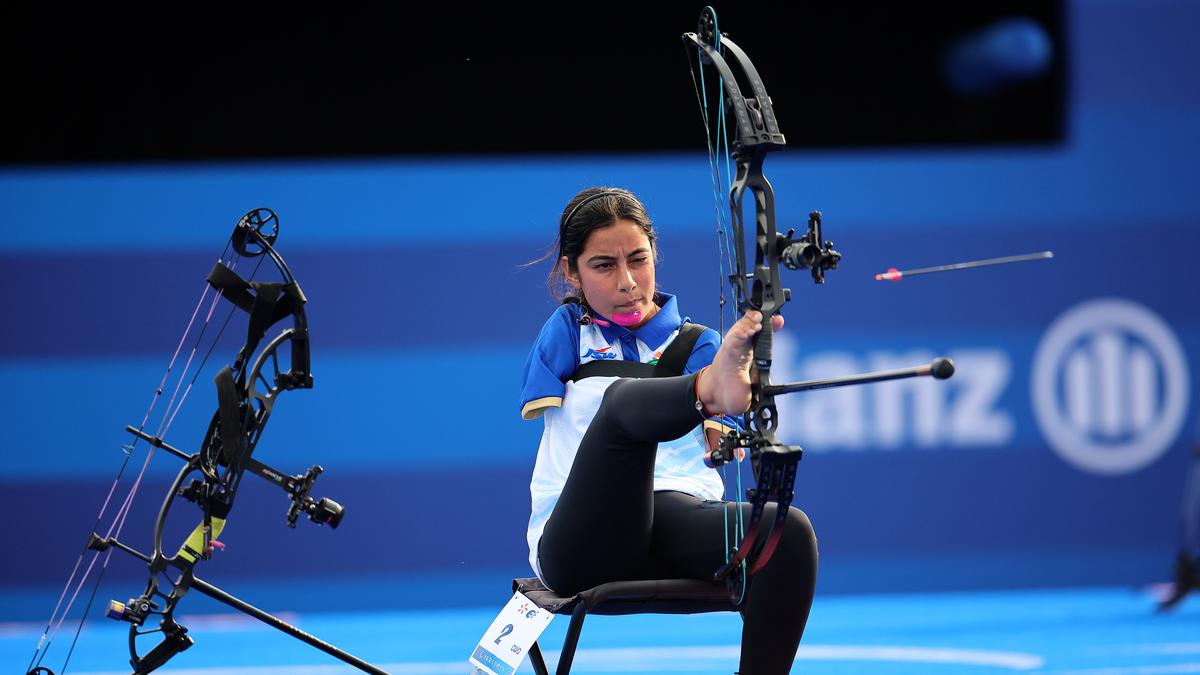Team India’s Sheetal Devi competes during the 2024 Summer Paralympic Games at Esplanade Des Invalides in Paris on August 31, 2024.
| Photo Credit: Getty Images
On this International Day of Persons with Disabilities, we celebrate the strength, determination, and boundless potential of individuals who constantly push the boundaries of what is possible. It is a moment to reflect on our collective responsibility to build a world where everyone can thrive, regardless of their ability.
This year, India’s Paralympians made history at the 2024 Summer Paralympic Games by bringing home 29 medals. Sheetal Devi with her impeccable precision in archery, Sumit Antil with his extraordinary javelin throws, Sharad Kumar with his triumphs in high jump, and many others exemplified excellence and resilience.
While the medals are a result of their determination and talent, we must also acknowledge the role that assistive technology (AT) plays in enabling such success. From advanced prosthetics to precision tools, AT provides the support that athletes need to push past boundaries. The journeys of these sportspersons symbolise the powerful synergy between human resilience and technological advancement.
AT is not just a game-changer in sports, it also empowers individuals to shine in education, employment, and other walks of life. However, the World Health Organization reports that globally, 90% of persons with disabilities lack access to AT. While India has done tremendous work to close the gap, there is an increasing need for such technology given the rising incidence of non-communicable diseases and injuries. Universal access to such technology must become a cornerstone of healthcare systems if we want true inclusivity.
The Indian Council of Medical Research (ICMR) has been unlocking new opportunities for millions through AT innovations. Recently recognised by the United Nations for its pioneering work, the ICMR has developed life-changing devices such as SmartCane, a mobility aid for the visually impaired, and TacRead, an affordable digital text reader. Created in collaboration with IIT Delhi, these empower individuals to live with greater independence and dignity.
To bridge the gap between innovation and accessibility, ICMR has launched the National List of Essential Assistive Products, standardising and improving access to AT across India. Complemented by awareness efforts such as the public launch of assistive devices at IIT Delhi’s National Centre for Assistive Health Technologies, these initiatives foster empowerment and dignity for persons with disabilities.
The journey from idea to implementation is often challenging, with many promising innovations struggling to secure funding. I once met a dedicated group of educators who had developed an interactive learning app for students with learning disabilities. Despite their passion and vision, they faced significant challenges in securing the funding to bring their idea to life. Fortunately, programmes such as the BIRAC-Social Alpha Quest for Assistive Technologies and the Attvaran India accelerator play a vital role by supporting startups focused on AT solutions. These initiatives not only provide funding but also offer mentorship to help refine and bring innovative ideas to the market. They ensure that financial constraints do not stand in the way of progress.
The possibilities for AT are immense. New frontiers such as Artificial Intelligence and other emerging technologies offer opportunities to create smarter, more adaptive solutions that cater to diverse needs. Moving beyond a one-size-fits-all approach, India is investing in customised, user-centric designs that empower individuals and communities alike. As we stride towards our vision of Viksit Bharat 2047, inclusivity and empowerment must guide our development agenda. Integrating rehabilitation into our health systems will not only enhance support for individuals with disabilities but also transform how they are perceived and valued.
The medals won by India’s Paralympians show how athletic excellence can be assisted by the transformative power of science. The remind us of the science behind the medals and of the possibilities it offers. They inspire us to build a future where every person has the tools to achieve their dreams.
Rajiv Bahl is Secretary, Department of Health Research, Government of India, and Director General, Indian Council of Medical Research
Published – December 03, 2024 12:52 am IST

